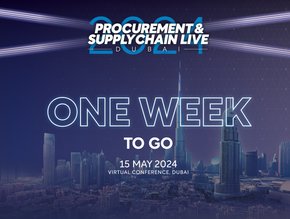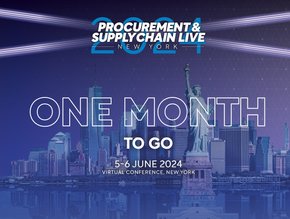Four ways to improve profitability in supply chain management

When you think about Supply Chain optimisation you typically think of improving delivery times, delivery accuracy and customer service. However, what many organisations fail to consider is that smarter supply chain management can also generate many hidden savings. Indeed, many organisations fail to make the link between the logistical process and the financial information, and miss out on a lot of revenue as a result.
Here are my four suggestions for how you can allow your organisation to improve profitability by making quick and simple savings:
1. Inventory Management
Let’s say you have just two hours’ worth of stock sitting in a car factory, with the aim of keeping the costs of storage low. But what if a certain part, such as a bumper, is delivered half an hour too late? It could result in a standstill of the entire, tightly coupled production line. So what are the costs associated with this? Purely focusing on limiting stock is far too short sighted and, in terms of the bottom line, the result will often be that it costs more than what it yields. Organisations must find the right balance between minimising their stocks and being able to meet order demands. The threat of a stock shortage must be visible before it actually arises and you have to be ready to give your customer ‘no’ for an answer if necessary.
2. Supplier Cash Control
A great deal of insight can be found in the supply and payment agreements with suppliers. There are a number of elements to consider, including how you can avoid purchasing unnecessary stock (through automated order placement), avoidance of costs for corrections in orders and supplies and the optimisation of the payment behaviour of suppliers. Ongoing partnerships with vendors often contain a lot of automatic processes that have to be analysed and optimised critically.
3. Operating Expenses Control
For many organisations, a great deal can also be improved on the operations side of things. There can be reasons for incorrect supplies occurring, and instead of simply correcting the relevant order, it’s important to search for the point in the process where the error arose in order to prevent the same mistake from happening again.
4. Customer Cash Control
When improving the profitability of customer relationships and orders, the measurability of order processing and optimising settlement of payments is crucial. By continually measuring whether the right product in the right quantity is delivered to the right place at the time required by the client, supply processes can be further optimised and costly errors avoided. However, a factor that is at least as important in order to save costs is the settlement of payments with clients. Reducing the term between ordering and payment, solving late payments, making missing payments visible and invoicing for them can save a great deal.
In order to realise real improvements in the supply chain, it is vital that logistical experts and controllers work far more closely together. In many organisations, supply chain optimisation is considered too much from a logistical point of view, without looking at what the exact economic “what happens to the cash?” consequences of certain decisions are.
With a relatively simple analysis, it’s clear that companies can gain quick wins. Unfortunately, a lot of companies are still missing out on opportunities because they do not have complete visibility or do not think things through. In order to realise actual savings, organisations will have to calculate the effect of implementing changes in supply chain operations on the working capital, the operational costs, service provision and the revenue of the organisation. Only then will it be possible to determine the extent to which supply chain optimisation truly can increase profitability.
- Fairtrade calls on David Cameron to stop trade deals undermining global poverty goalsDigital Supply Chain
- JDA creates a more profitable omnichannel supply chainDigital Supply Chain
- Mitigating risk across the healthcare supply chainDigital Supply Chain
- McDonalds vow to end deforestation in its global supply chainDigital Supply Chain






